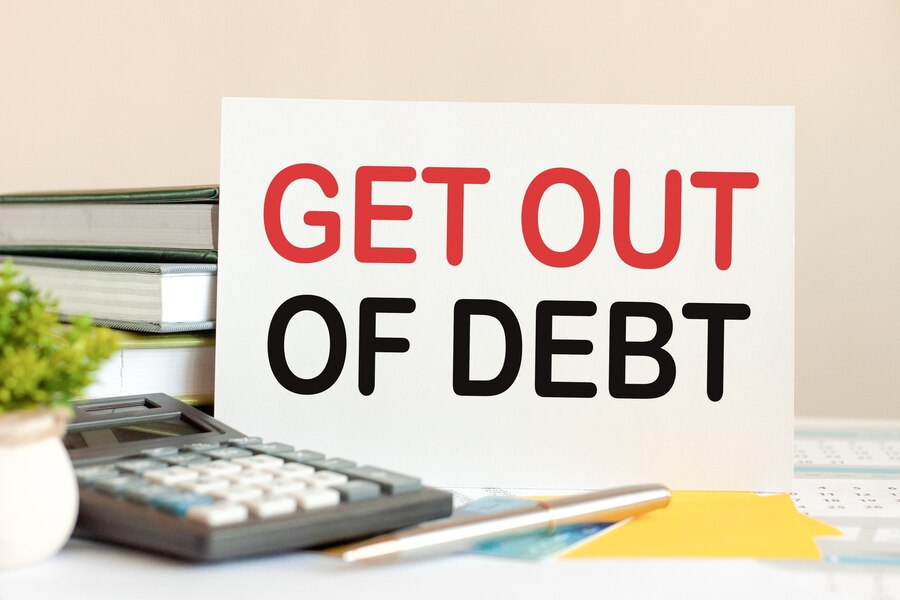Get Out Of Debt In Canada: Tips And Strategies That Work
4 Mins Read
Published on: 04 September 2023
Last Updated on: 09 November 2024

toc impalement
For many Canadians, managing debt is an ongoing, overwhelming challenge. The constant cycle of living paycheck to paycheck while juggling bills and loan payments can create stress and uncertainty. However, there’s hope – a range of practical strategies can empower you to take control of your finances and break free from the burden of debt. In the following guide, we’ve compiled actionable tips and strategies to help you navigate this journey toward financial stability.
From crafting a detailed budget to exploring alternatives like debt consolidation, our mission is to equip you with a practical toolkit to confront your debt head-on in the Canadian landscape. Taking proactive measures and embracing these strategies can reshape your financial trajectory and create a foundation for a debt-free future. Whether you’re dealing with credit card debt, loans, or other financial obligations in Canada, the insights we provide align with the country’s unique context, offering you the guidance you need to achieve your goal to get out of debt Canada.
1. Set Realistic Goals
Setting a realistic budgetary goal is the first step toward getting out of debt. This means determining how much money you spend each month, how much income you receive, and what expenses may be cut down or eliminated to reduce those numbers.
One helpful technique for calculating how much money you have available for paying off debts is the snowball method: determine which of your debts has the highest interest rate, then pay as much as possible towards clearing it while continuing minimum payments on other bills. Once that highest-rate account has been paid off, move on to the next-highest-rate account until all have been removed.
2. Consider Debt Consolidation

Another option for Canadians looking to get out of debt is consolidation loans. These types of loans combine all existing debts into one single loan with lower interest rates than those previously held accounts were paying; this can result in significant decreases in monthly payments over time. By taking advantage of these consolidation options from banks or credit unions, borrowers will often save substantially more than multiple high-interest accounts charging variable finance fees.
3. Utilize Credit Counseling Services
Credit counseling organizations offer non-profit solutions to managing personal finances effectively and legally according to Canadian law guidelines involving financial situations like consumer proposals or bankruptcy filings (as detailed under the Bankruptcy and Insolvency Act). Credit counseling services also assist with choosing long-term savings strategies such as RRSPs for retirement planning purposes.
4. Increase Income
One approach to taking control of your debt is to increase your income. Canadians can do this by working overtime, freelancing, or even starting a small business. Suppose your current job doesn’t allow for salary increases or promotions. In that case, it might be time to explore the possibility of finding other sources of revenue, such as selling items online through social media platforms like Facebook & Instagram.
5. Reduce Expenses
Reducing expenses might seem like an obvious solution to paying off debt, but it can be challenging. However, some ways may make managing finances more bearable. For one example, consider reducing costs relating to housing by downsizing living situations like finding a roommate or renting out extra space in your home/apartment for a profit; switching from processed foods towards healthier alternatives can also help cut costs while improving health & well-being.
6. Refinance Your Mortgage

If you are paying high-interest rates and have equity in your home, consider refinancing your mortgage with fixed-rate affordable payment schedules that provide stability and peace of mind over extended periods compared to variable rates associated with quick project progressions.
7. Gradually Build Emergency Funds
Ensure that you put away money into emergency funds regularly according to budgetary constraints- these types of savings accounts will help significantly should any unexpected expenses crop up during times of financial struggles, covering everyday bills without relying upon credit cards for survival.
In conclusion, getting out of debt takes time and effort but is possible if you follow effective strategies, including setting realistic goals, utilizing consolidation loans where applicable two different types available elsewhere, relying primarily upon credit counseling services, seeking non-profit assistance they offer advice concerning long-term planning goals beyond just maximizing financial wealth reduction rather than accumulating it at expense risk sacrifice leading ultimately towards regaining personal independence security freedom life coach sessions for mindset adjustment regular therapy sessions, etc). By increasing income (working side hustles), reducing unnecessary expenses (such as eating out), refinancing mortgages at fixed rates with manageable payment schedules, or gradually building up emergency funds, you can positively contribute towards your debt payoffs in the future. Remember- consistency is key!
Read Also:


















Comments Are Closed For This Article